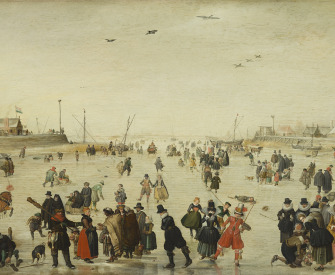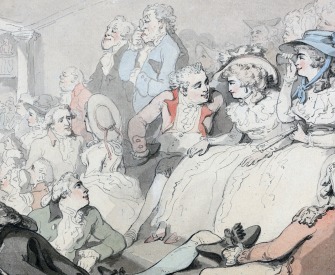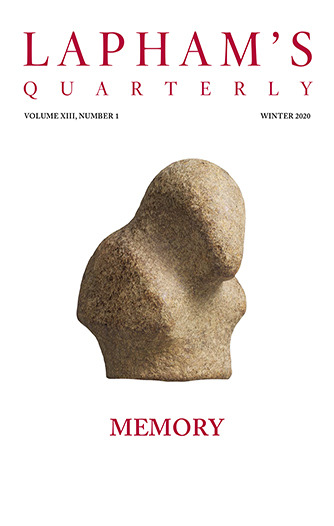1. Babies are illogical;
2. Nobody is despised who can manage a crocodile;
3. Illogical persons are despised.
Answer: Babies cannot manage crocodiles.
1. There are no Jews in the kitchen;
2. No Gentiles say “shpoonj”;
3. My servants are all in the kitchen.
Answer: My servants never say “shpoonj.”
1. No ducks waltz;
2. No officers ever decline to waltz;
3. All my poultry are ducks.
Answer: My poultry are not officers.
1. No one takes in the Times unless he is well-educated;
2. No hedgehogs can read;
3. Those who cannot read are not well-educated.
Answer: No hedgehog takes in the Times.
1. All the MPs who belong to the House of Commons have perfect self-command;
2. No MP who wears a coronet should ride in a donkey race;
3. All the MPs who belong to the House of Lords wear coronets.
Answer: No MP should ride in a donkey race unless he has perfect self-command.
1. Nobody who really appreciates Beethoven fails to keep silence while the “Moonlight Sonata” is being played;
2. Guinea pigs are hopelessly ignorant of music;
3. No one who is hopelessly ignorant of music ever keeps silence while the “Moonlight Sonata” is being played.
Answer: Guinea pigs never really appreciate Beethoven.
1. No interesting poems are unpopular among people of real taste;
2. No modern poetry is free from affectation;
3. All your poems are on the subject of soap bubbles;
4. No affected poetry is popular among people of real taste;
5. No ancient poem is on the subject of soap bubbles.
Answer: All your poems are uninteresting.
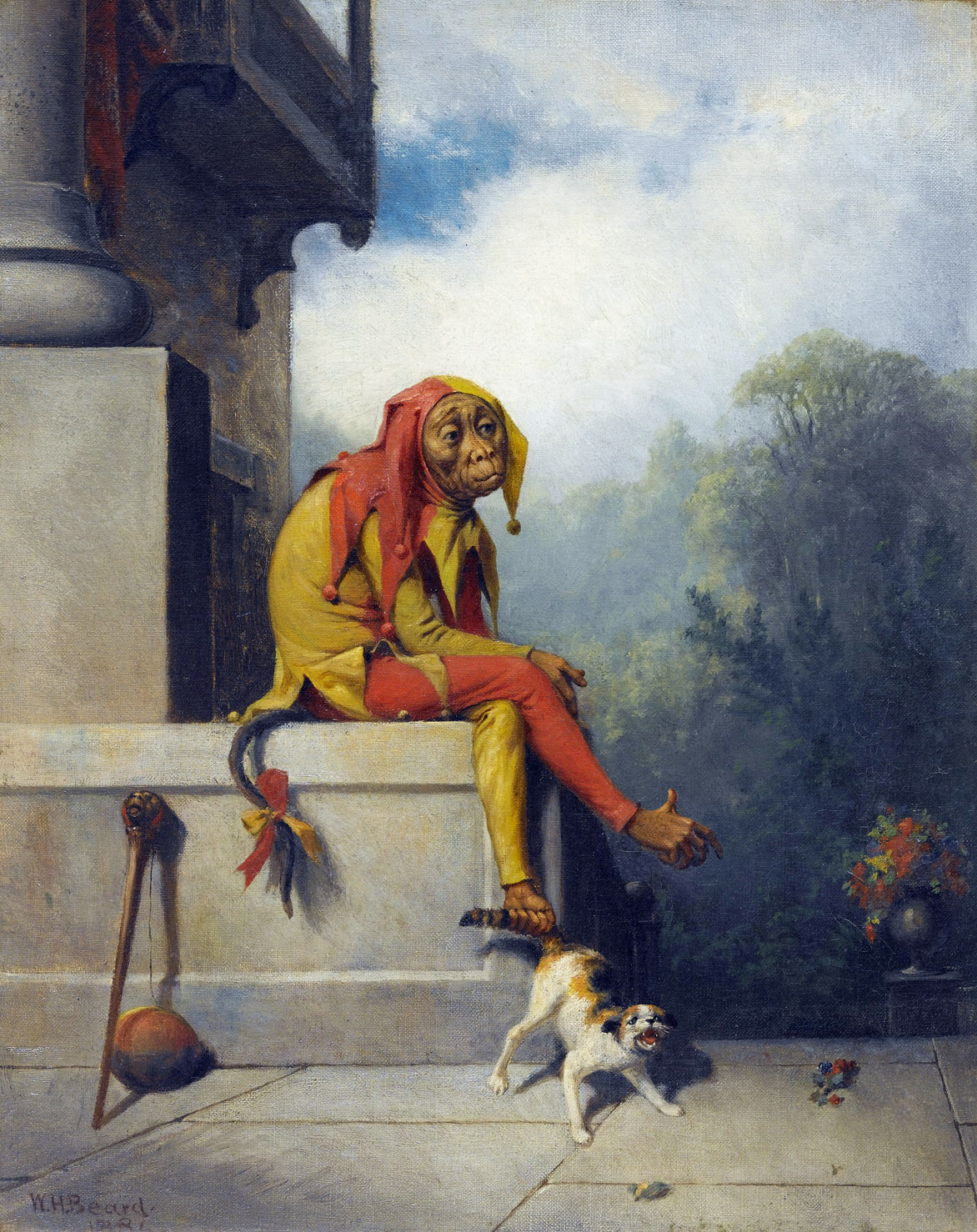
For What Was I Created?, by William Holbrook Beard, 1886. Brooklyn Museum, gift of Florence Logan.
1. There is no box of mine in this room that I dare open;
2. My writing desk is made of rosewood;
3. All my boxes are painted, except those in this room;
4. There is no box of mine that I dare not open, unless it is full of live scorpions;
5. All my rosewood boxes are unpainted.
Answer: My writing desk is full of live scorpions.
1. All writers who understand human nature are clever;
2. No one is a true poet unless he can stir the hearts of men;
3. Shakespeare wrote Hamlet;
4. Not but those who understand human nature can stir the hearts of men;
5. None but a true poet could have written Hamlet.
Answer: Shakespeare was clever.
1. Animals that do not kick are always unexcitable;
2. Donkeys have no horns;
3. A buffalo can always toss one over a gate;
4. No animals that kick are easy to swallow;
5. No hornless animal can toss one over a gate;
6. All animals are excitable, except buffalo.
Answer: Donkeys are not easy to swallow.
1. Animals are always mortally offended if I fail to notice them;
2. The only animals that belong to me are in that field;
3. No animal can guess a conundrum unless it has been properly trained in a board school;
4. None of the animals in that field are badgers;
5. When an animal is mortally offended, it rushes about wildly and howls;
6. I never notice any animal unless it belongs to me;
7. No animal that has been properly trained in a board school ever rushes about wildly and howls.
Answer: No badger can guess a conundrum.
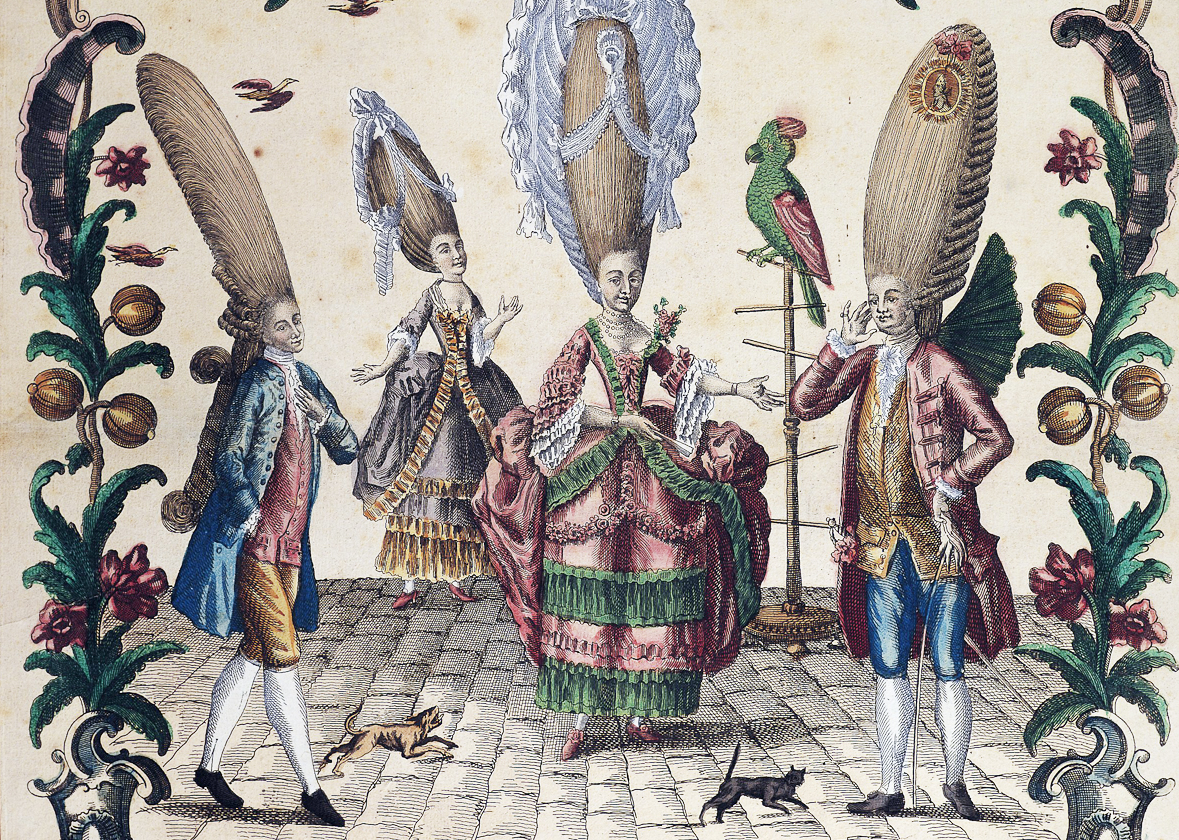
The Triumph of Ridicule, by Basset, 1773. De Agostini Picture Library, G. Dagli Orti, The Bridgeman Art Library.
1. The only animals in this house are cats;
2. Any animal is suitable for a pet if it loves to gaze at the moon;
3. When I detest an animal, I avoid it;
4. No animals are carnivorous, unless they prowl at night;
5. No cat fails to kill mice;
6. No animals ever take to me, except what are in this house;
7. Kangaroos are not suitable for pets;
8. None but carnivores kill mice;
9. I detest an animal that does not take to me;
10. Animals that prowl at night always love to gaze at the moon.
Answer: I always avoid a kangaroo.
From Symbolic Logic: Part 1, Elementary. Born Charles Dodgson in 1832, Carroll became a lecturer in mathematics at Oxford University in 1855, published his first book, on geometry, in 1860, and told the story of a girl falling down a rabbit hole to ten-year-old Alice Liddell at a picnic in 1862. “Oh, Mr. Dodgson,” she said, “I wish you would write out Alice’s adventures for me!” He published Alice’s Adventures in Wonderland in 1865 and Through the Looking-Glass in 1871. Much of the second volume of his symbolic logic already had been set in type when he died in 1898.
Back to Issue



